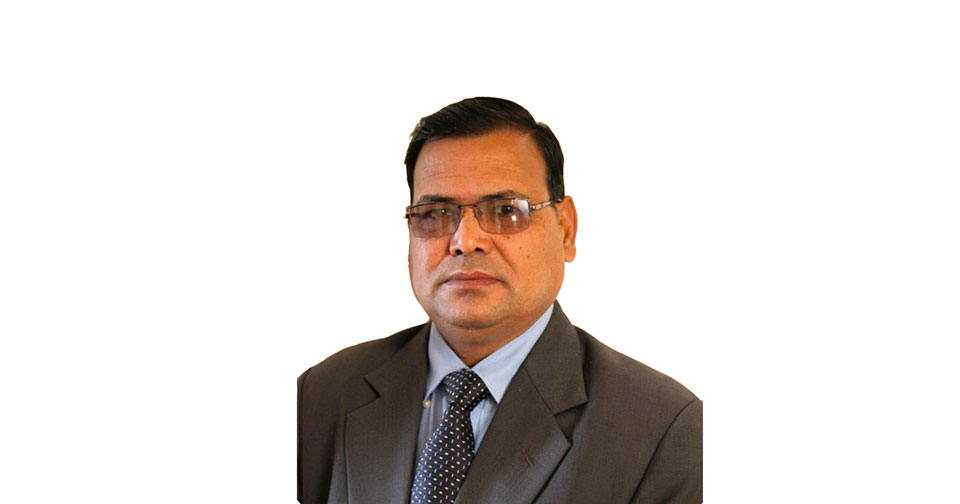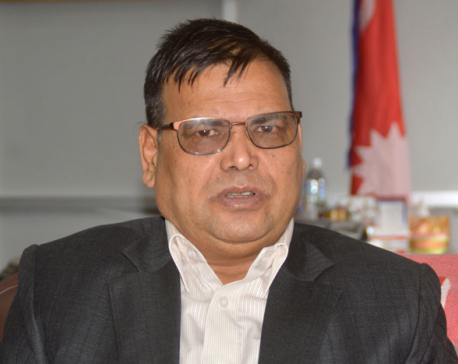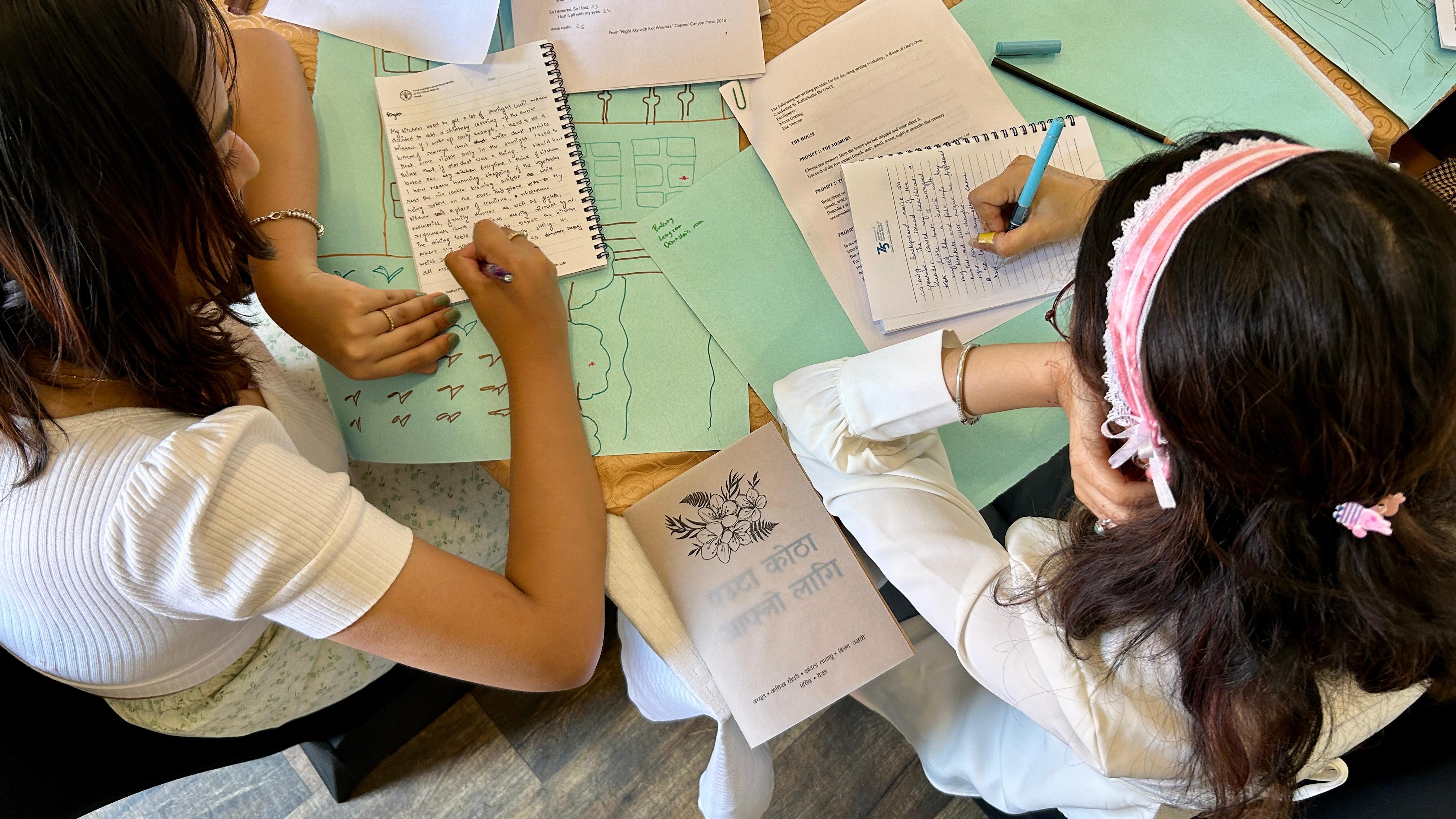
OR
Speaker Mahara lauds IPU for promoting democratic changes
Published On: April 8, 2019 04:30 PM NPT By: Republica | @RepublicaNepal

KATHMANDU, April 8: Speaker of the House of Representatives, Krishna Bahadur Mahara, has commended the role of Inter Parliamentary Union (IPU) in laying out fundamentals for preserving peace and promoting positive democratic changes through political dialogue and concrete action.
In his statement today to the 140th IPU Assembly being held in Doha, Qatar, he said the theme of the deliberations of today's session 'Parliaments as platforms to enhance education for peace, security and the rule of law,' was timely and relevant. "It (the theme) recognizes that citizens' trust is the key in all aspects of government, a trust that is duly earned constitutes a basis for a peaceful, just and inclusive society.
" Stating that the Parliament in Nepal continued to protect and promote the values of democracy, human rights, equality and the rule of law to make lives of our people better, he observed that the theme of today’s debate encompassed various targets of Goal 4 of the Sustainable Development Goals. "Ensuring inclusive and equitable quality education and promoting life-long learning opportunities for all is the central thrust of this goal. Sustainable global peace and security can only be achieved when education is accorded priority by States and its institutions. Besides, education is the empowering asset to fight against poverty, inequality, and insecurity. Education can promote tolerance and respect for cultural, religious and ideological diversities," Speaker Mahara said.
Noting that education helped build awareness, engage youth and students as creative and constructive citizens, and build the foundation of peace, security and the rule of law, he stressed that education also brought both immediate and long-term positive impacts in societies and good experiences could be replicated in other parts of the world. We as political leaders and parliamentarians remain focused on formalizing policies paying due regard to the country and region-specific needs, depending on the level, gaps and stage of development of our countries, he added.
"We share the view that the securing justice and freedom to women, minorities and other marginalized groups must be collective, an endeavor of government and all sections of society. This can only be achieved through political will, commitment, and action," he said adding that the Parliament, as the representative body of the people, needs to adopt and bring positive changes through the formulation of laws, budgetary sanctions and overseeing the policies and programs of the governments. Speaker Mahara shared that Nepal has mainstreamed these changes as well as the SDGs into the national plan, policies, and programs.
"For transforming Nepal from low to middle-income country by 2030, education is taken as the prime factor to be focused. The Constitution of Nepal explicitly promotes and protects the right of children for their safer future and ensures the right to education. Similarly, Nepal has declared that school and children are zones of peace to protect children's rights even during conflict and crisis to ensure that their fundamental rights are not affected by any means.
These rights provided by the Constitution have been guaranteed under the implementing legislation. Last year alone, the Federal Parliament of Nepal enacted 16 legislation to implement the fundamental rights enshrined in the Constitution." In this context, he referred to the School Sector Reform Plan (2007-2015) which has made significant gains in enrollment in school and achieving gender parity in primary school.
Similarly, the School Sector Development Plan (2016-2023) and the Consolidated Equity Strategy for Nepal (2014), he said, aimed to enable all children a safe, inclusive learning environment, regardless of caste, ethnicity, gender, language or disability. "The strategy has also developed an Equity Index to assess disparities in access, participation, and learning according to indicators of vulnerability.
Thus, the educational policy framework of Nepal adequately promotes tolerance and respect for human dignity through the curricular and co-curricular arrangements," he elaborated. Talking about the role of other stakeholders in the development of education in the country, he said, "Along with the government's institutions, other stakeholders and partners are encouraged in advancing education and social awareness.
Private sector schools and colleges serve around 20% of the students across the country. Civil society organizations too have significantly contributed to creating awareness and promoting education at local levels and support teachers to develop inclusive pedagogy." He expressed the confidence that the IPU member parliaments' effort through IPU Assembly would work more in exploring the ways and means of how political leadership can contribute to promoting peace and security and ensure a just society in a sustainable way.
Speaker Mahara believed that the exchange of experiences and ideas through these deliberations in this Assembly would result in the adoption of useful and productive resolutions to promote peace, security and just societies. "Our deliberations in this Assembly of Inter Parliamentary Union should represent a basic value of democracy, peace, and security through dialogue and exchange of experience." The IPU assembly started from April 6 and will conclude on April 10.
RSS
You May Like This

Global peace possible only when big countries work on peace: NCP leader Nepal
KATHMANDU, Aug 6: Senior leader of NCP, Madhav Kumar Nepal, has said the world would be peaceful once the powerful... Read More...

Speaker Mahara stresses on prompt service delivery
KATHMANDU, July 5: Speaker at the House of the Representatives (HoR) Krishna Bahadur Mahara has directed the chiefs of the... Read More...

Delegated legislation be made as per laws and constitution: Speaker Mahara
KATHMANDU, May 23: Speaker Krishna Bahadur Mahara has underscored formulation of delegated legislation in accordance with the sentiments of laws... Read More...



Just In
- By-elections: Silence period starts from today, campaigning prohibited
- A Room of One's Own- Creative Writing Workshop for Queer Youth
- Tattva Farms rejuvenates Nepali kitchens with flavored jaggery
- Evidence-Based Policy Making in Nepal: Challenges and the Way Forward
- Insurers stop settling insurance claims after they fail to get subsidies from government
- Nepal-Qatar Relations: Prioritize promoting interests of Nepali migrant workers
- Health ministry to conduct ‘search and vaccinate’ campaign on May 13
- Indian customs releases trucks carrying Nepali tea, halted across Kakarbhitta














Leave A Comment